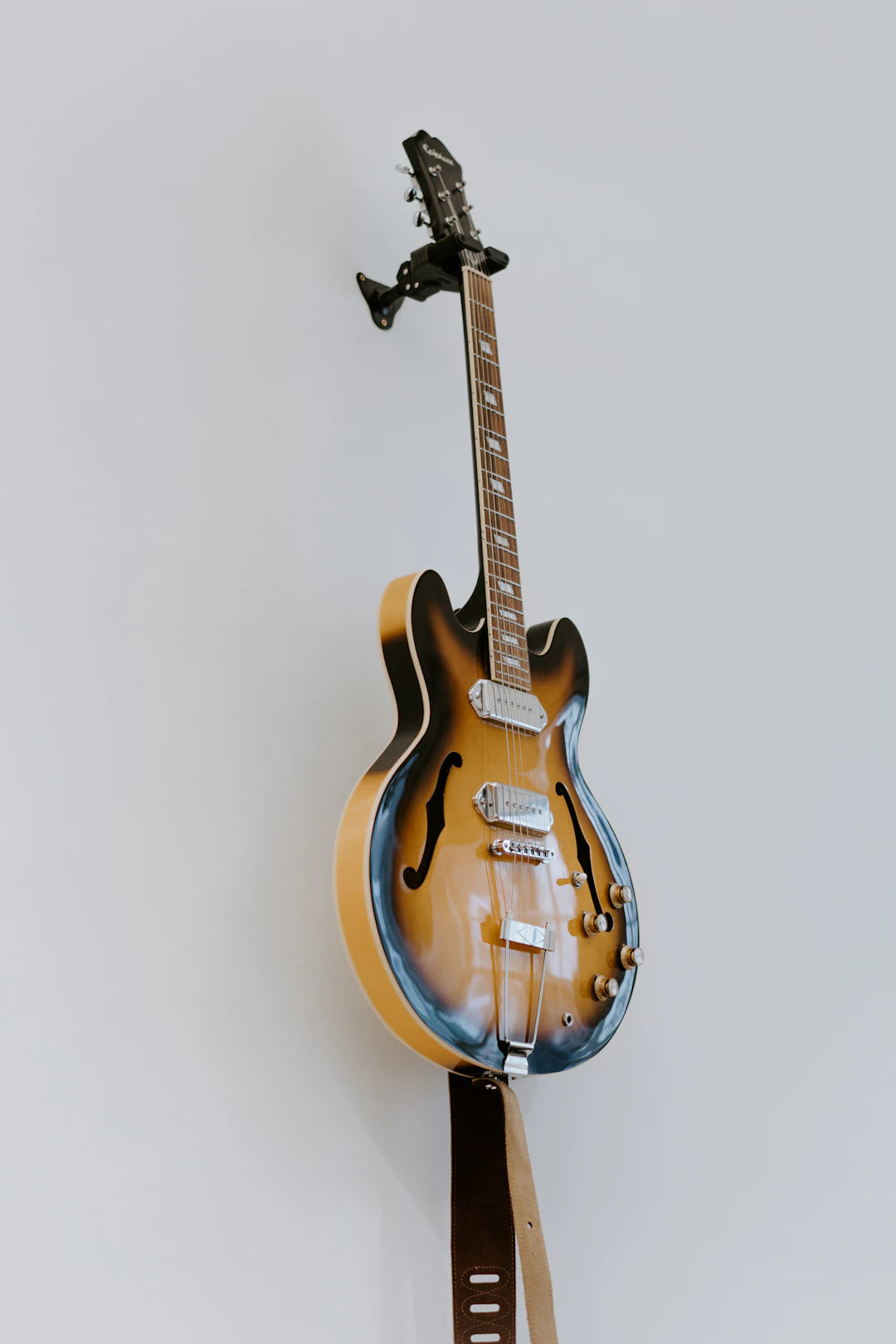Frequently Asked Questions
1. What are guitar pickups?
2. What is the difference between single-coil and humbucker pickups?
3. Which type of pickup is better for rock and metal music?
4. Can I use both pickup types in one guitar?
5. How can I maintain my guitar pickups?
When it comes to picking the right guitar for your music style, understanding the nuances of guitar pickups is essential. Each type of pickup carries a unique flavor and character that can dramatically change your sound. If you’re considering an Odyssey Traditions Stratocaster or other electric guitars, knowing the differences between single-coil and humbucker pickups is vital. In this blog post, we’ll break down the key differences between these two popular types of guitar pickups made in America, helping you make an informed choice.
Understanding Guitar Pickups
Guitar pickups are the heart of an electric guitar. They convert string vibrations into electrical signals, which are then amplified to produce sound. The two most common types of pickups are single-coil and humbucker. Each has its own unique tones, characteristics, and advantages.
What is a Single-Coil Pickup?
Single-coil pickups, as the name suggests, utilize a single coil of wire wrapped around a magnet. This design contributes to their bright and clear tonal quality. First developed in the 1930s, these pickups gained widespread popularity thanks to their use in iconic guitars like the Odyssey Traditions Stratocaster.
- Tonal Characteristics: Single-coil pickups deliver a bright, crisp sound with a punchy attack. They excel at producing high frequencies, making them ideal for genres like rock, blues, and country.
- Noise Factor: One consideration with single-coil pickups is susceptibility to interference and noise. Their design makes them more prone to unwanted hum and buzz, especially under florescent lighting or near electronic devices.
- Examples of Uses: Famous players like Jimi Hendrix and Eric Clapton have used single-coil pickups to create their signature sounds, contributing to their enduring popularity.
What is a Humbucker Pickup?
Conversely, humbuckers consist of two coils wired together, effectively canceling out the noise that single-coils may pick up. This design results in a thicker, warmer sound that’s appealing for a variety of musical styles.
- Tonal Characteristics: Humbucker pickups produce a rich, full-bodied tone with enhanced bass frequencies. They are often favored in jazz, hard rock, and metal for their creamy smooth sound.
- Noise Reduction: Due to their construction, humbuckers are less susceptible to interference, making them quieter than single-coils. This attribute is particularly useful in environments where unwanted noise is prevalent.
- Examples of Uses: Icons like Les Paul and BB King have embraced humbucker pickups, showcasing their versatility across various genres.
Key Differences Between Single-Coil and Humbucker Pickups
Now that we understand the basic characteristics of each pickup type, let’s delve into the key differences:
1. Sound Quality
The primary factor distinguishing single-coil from humbucker pickups is sound quality. Single-coils produce a bright, punchy sound, while humbuckers deliver a fuller, warmer tone. Depending on your musical style, one may be more appealing than the other.
2. Noise and Interference
As mentioned, single-coil pickups are more vulnerable to interference and noise. This makes humbuckers a popular choice for players who use high-gain amplifiers or perform in noisy environments.
3. Versatility
While both pickups can be versatile, their applications sometimes differ. Single-coils are known for their clarity, making them suitable for clean tones, while humbuckers are versatile for both clean and distorted sounds, adding to their popularity in rock and metal genres.
4. Pickup Construction
The construction of these pickups also varies significantly. Single-coils are simpler in design, while humbuckers involve dual coils and additional wiring. This difference can influence not only sound but also cost and reliability.
5. Price Point
Generally, humbuckers can be more expensive due to their complexity in manufacturing. However, many affordable options exist for both types, particularly among guitar pickups made in America.
Choosing the Right Pickup for Your Style
When it comes to choosing between single-coil and humbucker pickups, your musical style will play a significant role. Here are some considerations to help you decide:
- Genre: If you predominantly play rock, metal, or jazz, you might lean towards humbuckers. If your style is more aligned with blues or country, single-coils may be the better option.
- Playing Environment: If you often play in loud environments or are dealing with interference, you may benefit from the noise-canceling capabilities of humbuckers.
- Sound Preference: Your personal tonal preferences will heavily influence your decision. It's worth trying out both types to see which resonates more with your musical inclinations.
Exploring Hybrid Options
If you’re still indecisive, consider the hybrid models that combine the properties of both single-coil and humbucker pickups. These can offer a unique tonal palette that captures the best of both worlds. Many modern guitars feature a mix of both, allowing players to switch between sounds effortlessly.
Wiring and Pickup Combinations
Understanding pickup wiring can also help you find the perfect setup. Many guitarists use a combination of single-coils and humbuckers to achieve a wider range of tones. For instance, some players opt for a single-coil in the neck position for rich, warm tones and a humbucker in the bridge for aggressive, punchy sounds.
Maintenance of Your Guitar Pickups
Regardless of which type of pickup you choose, maintaining your guitar's electronics is crucial for performance and longevity. Below are some essential maintenance tips:
- Keep It Clean: Regularly check and clean your pickups to avoid build-up and ensure optimal sound quality.
- Inspect Wiring: Periodically inspect the wiring for any signs of wear or damage, particularly if you’ve experienced issues with sound.
- Change Strings Regularly: Fresh strings can help maintain tonal quality and playability, making your pickups sound their best.
The Future of Guitar Pickups
As technology advances, the future of guitar pickups continues to evolve. From experimenting with new materials to hybrid designs, the possibilities are endless. For musicians looking to explore, it’s a great time to delve into the world of guitar pickups made in America and discover innovative options for your sound.
Final Thoughts: Find Your Perfect Guitar Sound!
Your journey in finding the right pickup doesn’t have to be overwhelming. By understanding the key differences between single-coil and humbucker pickups, and considering your preferences and style, you can make a choice that complements your music. Whether it’s the bright tones of the Odyssey Traditions Stratocaster or the rich sound of a humbucker-equipped guitar, remember that the ultimate goal is to enjoy your craft and express yourself musically. Happy playing!
Visit one of our fellow Shopify or Wix users' stores by clicking this store link. Please note that this is a promotional link, and we are not responsible for the content of the linked store.











